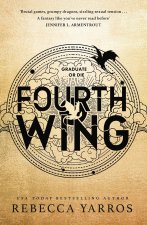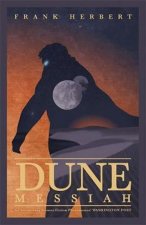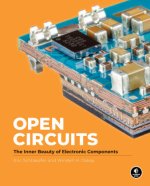
Kód: 12572128
Divine Providence in Philo of Alexandria
Autor Peter Frick
In his study Peter Frick starts with the examination of the theocentric structure of Philo's thought as outlined in the important passage De Opificio Mundi 171-2 where Philo correlates the idea of providence with his concept of Go ... celý popis
- Jazyk:
 Angličtina
Angličtina - Vazba: Pevná
- Počet stran: 233
Nakladatelství: JCB Mohr (Paul Siebeck), 1999
- Více informací o knize

3799 Kč
Dostupnost:
50 % šance Máme informaci, že by titul mohl být dostupný. Na základě vaší objednávky se ho pokusíme do 6 týdnů zajistit.
Máme informaci, že by titul mohl být dostupný. Na základě vaší objednávky se ho pokusíme do 6 týdnů zajistit.Prohledáme celý svět
Mohlo by se vám také líbit
Darujte tuto knihu ještě dnes
- Objednejte knihu a zvolte Zaslat jako dárek.
- Obratem obdržíte darovací poukaz na knihu, který můžete ihned předat obdarovanému.
- Knihu zašleme na adresu obdarovaného, o nic se nestaráte.
Informovat o naskladnění knihy
Zadejte do formuláře e-mailovou adresu a jakmile knihu naskladníme, zašleme vám o tom zprávu. Pohlídáme vše za vás.
Více informací o knize Divine Providence in Philo of Alexandria
Nákupem získáte 380 bodů
 Anotace knihy
Anotace knihy
In his study Peter Frick starts with the examination of the theocentric structure of Philo's thought as outlined in the important passage De Opificio Mundi 171-2 where Philo correlates the idea of providence with his concept of God and the theory of creation. On this basis, any adequate understanding of providence in Philo must begin with the correlation between the formal aspects of the Philonic concept of God, especially the idea of God's transcendence, and Philo's conceptualization of the idea of providence in light of these formal aspects. In particular, the issue is how Philo can predicate that God is provident in nature, although God cannot be apprehended in his essence. Moreover, Philo explains the immanence of God in the cosmos in terms of the Logos and the divine powers, one of which he specifically characterizes as the providential power. Both the aspects of divine transcendence and immanence cohere in Philo's theory of creation. He conceives of the role of providence in cosmological matters as being responsible for the design, administration and continuous existence of the created universe. Two further issues, the questions of astral fatalism and theodicy, are critically important for a thorough understanding of Philo's conception of divine providence. Philo rejects the assumption implied in astral fatalism that the stars are transcendent divinities and thus have causal powers over human affairs. And he rejects astral fatalism because it renders absurd the notion of moral responsibility. Concerning the question of theodicy, Philo proceeds from the Platonic premise that God is not the cause for evil in any way. For him, the existence of moral evil exonerates God and his providence as the cause for evil and anchors the blame in the person.
 Parametry knihy
Parametry knihy
3799 Kč
- Plný název: Divine Providence in Philo of Alexandria
- Autor: Peter Frick
- Jazyk:
 Angličtina
Angličtina - Vazba: Pevná
- Počet stran: 233
- EAN: 9783161471414
- ISBN: 3161471415
- ID: 12572128
- Nakladatelství: JCB Mohr (Paul Siebeck)
- Hmotnost: 533 g
- Rozměry: 240 × 161 × 22 mm
- Datum vydání: 14. June 1999
Oblíbené z jiného soudku
-

Dune
262 Kč -

Haunting Adeline
617 Kč -

Berserk Deluxe Volume 2
1093 Kč -

White Nights
78 Kč -

Powerless
259 Kč -

Atomic Habits
339 Kč -

Dune Messiah
178 Kč -

Berserk Deluxe Volume 3
1138 Kč -

One Day
276 Kč -

Berserk Deluxe Volume 1
1112 Kč -

Iron Flame
352 Kč -

Surrounded by Idiots
256 Kč -

Harry Potter and the Prisoner of Azkaban (Minalima Edition)
688 Kč -

Gravity Falls Journal 3
440 Kč -

Heaven Official's Blessing: Tian Guan Ci Fu (Novel) Vol. 1
440 Kč -

The Creative Act
586 Kč -

Dune
250 Kč -

Hunting Adeline
625 Kč -

A Little Life
276 Kč -

Children of Dune
174 Kč -

Heaven Official's Blessing: Tian Guan Ci Fu (Novel) Vol. 2
441 Kč -

Bungo Stray Dogs, Vol. 8 (light novel)
367 Kč -

Percy Jackson and the Olympians 5 Book Paperback Boxed Set
953 Kč -

Solo Leveling, Vol. 1
444 Kč -

The Prisoner's Throne
231 Kč -

Court of Thorns and Roses
254 Kč -

Cry Baby Coloring Book
255 Kč -

Fourth Wing
420 Kč -

Icebreaker
199 Kč -

Berserk Deluxe Volume 6
1086 Kč -

Avatar, the Last Airbender: The Kyoshi Novels (Box Set)
676 Kč -

The 48 Laws of Power
602 Kč -

House of Leaves
405 Kč -

Twisted Lies
214 Kč -

Dune Messiah
277 Kč -

No Longer Human
339 Kč -

48 Laws Of Power
471 Kč -

Twisted Games
214 Kč -

Caraval Paperback Boxed Set
905 Kč -

Solo Leveling, Vol. 2
448 Kč -

Open Circuits
861 Kč -

Berserk Deluxe Volume 5
1115 Kč -

Heaven Official's Blessing: Tian Guan Ci Fu (Novel) Vol. 3
441 Kč -

Berserk Deluxe Volume 4
1165 Kč -

Court of Mist and Fury
254 Kč -

SOLO LEVELING V08
449 Kč -

English File Upper Intermediate Multipack A (4th)
495 Kč -

CHAINSAW MAN V14
249 Kč -

Before the Coffee Gets Cold
276 Kč
Osobní odběr Praha, Brno a 12903 dalších
Copyright ©2008-24 nejlevnejsi-knihy.cz Všechna práva vyhrazenaSoukromíCookies




 Vrácení do měsíce
Vrácení do měsíce 571 999 099 (8-15.30h)
571 999 099 (8-15.30h)